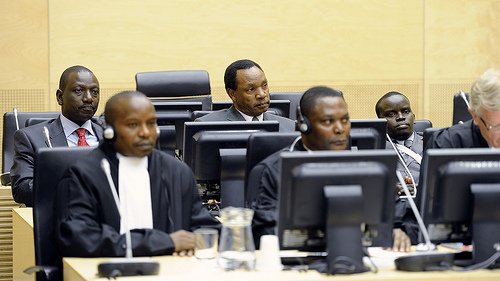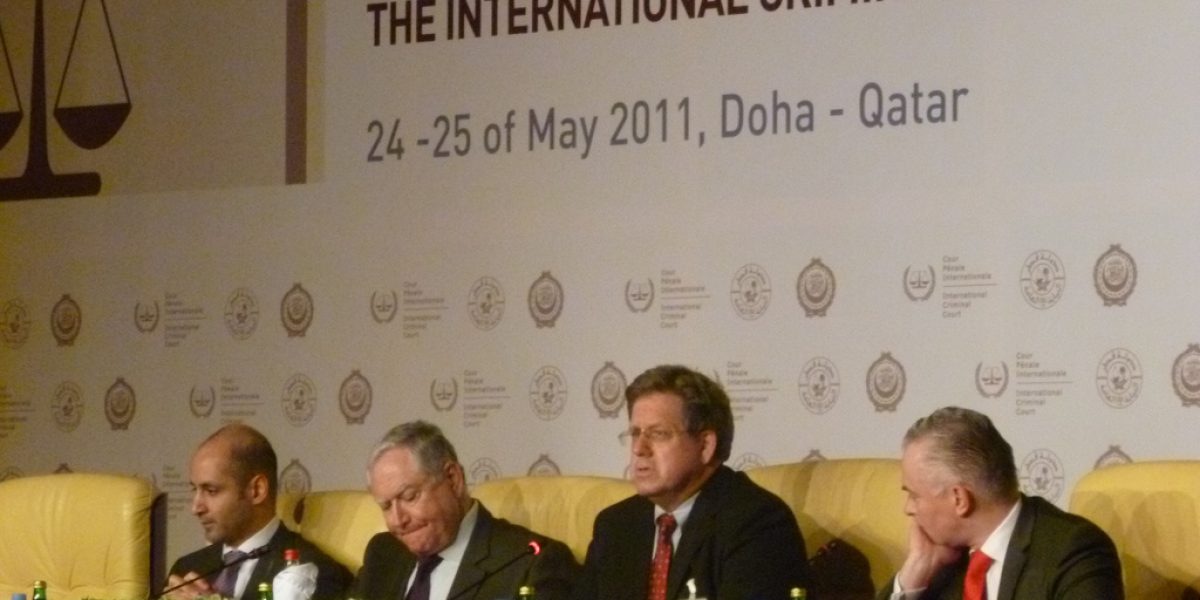Such attitudes result from a lack of information and gross prejudice. On 17July 2011, the president of the International Criminal Court, Judge Sang-Hyun Song of Korea, issued a statement to celebrate the Day of International Criminal Justice. He called for the people of the world to “remain united in our resolve to defeat impunity and the lawlessness, brutality and disdain for human dignity that it represents.”
Internationally, the need for a criminal court was recognised after the Second World War, but the first such tribunals created had specific mandates only to prosecute those guilty of genocide in Rwanda and later in the former Yugoslavia. South African jurists played important roles in both tribunals.
The International Criminal Court, with potential global jurisdiction, came into being on 11 April 2002 following the ratification by 60 states of the Rome Statute.The text was adopted in 1998. Only seven states opposed its adoption: China, Iraq, Israel, Libya, Qatar, United States, and Yemen.
Today there are 115 member states with more about to join. Many African countries, 32 to be exact, are contracting parties to the Rome Statute. Tunisia will become the 116th member globally and the 33rd African member on 1 September 2011.
South Africa was an active participant in the negotiations that led to the adoption of the Statute and voted in favour of the Statute at its adoption in 1998. It ratified the Statute on 1 July 2002, the date on which it entered into force.
In addition to the Day of International Criminal Justice, two current events make it an appropriate time to look a little more deeply into the powers and activities of the ICC. These are the warrant issued by the Court for the arrest of Libyan leader, Muammar Gaddafi, and the assault by Sudan on the citizens of the disputed province of South Kordoban on the border between it and South Sudan immediately following the independence of South Sudan.
In a recent edition of The After Eight Debate on the South African radio station, SAfm, the presenter, Xolani Gwala, interviewed an ICC spokesperson, Mr. Fadi El Abdallah, about the controversy surrounding the Court’s recent indictment of Muammar Gaddafi. And enlightening it was.
Mr Abdallah explained that there are three ways in which the Court can initiate action: at the request of a State Party to the founding Rome Statute; at the request of the UN Security Council; and when the Court’s prosecutor comes to the conclusion that a “situation” (the term used by the Court) exists in a State Party indicating that its leaders or citizens have committed genocide, crimes against humanity or war crimes. Recently, prosecution of crimes of aggression has been added to the Court’s mandate, but this additional function will only become effective at a later date.
During the radio interview, the question again arose as to why the Court ostensibly focuses only on Africa. His response was equally enlightening to those without a deep knowledge of the Court and its statute.
It was explained that three African states party to the Rome Statute, Uganda, the Democratic Republic of Congo and the Central African Republic, in fact used their rights as parties to the Statute to request the Court to intervene in cases where they were able to provide evidence of war crimes against a number of their citizens but, for whatever reason, were unable to prosecute the perpetrators themselves.
In two other cases, Sudan and Libya, the Court acted at the request of the UN Security Council to indict the heads of states. Let us remember that the decision of the Security Council by resolution 1970, in the first of two resolutions which authorised action against Gaddafi, was adopted unanimously with the support of its three African members, South Africa, Nigeria and Gabon.
The Court’s action against the president of Sudan, Omar al-Bashir, concerned his alleged involvement, at a policymaking level, in the situation resulting in on-going violence against residents of Dafur in western Sudan over a number of years. Both the UN and the African Union have been engaged in peacekeeping operations in this benighted region. And South Africa has been one of the African countries that have supplied peacekeepers to this operation.
The recent bombing, perpetrated by Sudanese forces against civilians in the disputed state of South Kordofan, on the border of the newly independent state of South Sudan, can only strengthen the allegations against al-Bashir for which he has been indicted by the Court.
The existence of the warrant for al-Bashir’s arrest has placed South Africa in an invidious position on at least one recent occasion. South Africa aligned itself with African criticism of the ICC warrant at an AU meeting in Sirte, during Gaddafi’s presidency of the Union in 2009.
When President Jacob Zuma was to be inaugurated in May of that year an invitation was sent to Bashir to attend, as was the case will all African heads of state. At the same time the Sudanese ambassador in Pretoria was warned that if his president did accept the invitation and came to South Africa, he would be arrested and handed over to the ICC. This was South Africa’s duty and obligation as a state party to the Rome Statute.
In the sixth case of the ICC intervening in Africa, the Court’s prosecutor used his powers in terms of the Statute to intervene in a situation in Kenya, a member country of the Rome Statute, because in his view – and based on evidence before him – the indicted leaders in that country had perpetrated crimes against humanity but were not being prosecuted for those crimes by their national courts.

On 5 May 2011, the president of Cote d’Ivoire, Alassane Ouattara, confirmed his wish for the ICC to conduct independent and impartial investigations into the most serious crimes committed since 28 November 2010 on the entire Ivorian territory.
As regards the allegations that the Court only investigated and acted on situations in Africa, Mr Abdallah told South African listeners that investigations of similar charges are also in progress on situations in Colombia and Honduras, among others, but they have not progressed as rapidly as was possible in the case of Libya. The Court relies on inputs from outside sources, such as non-governmental organisations, human rights advocacy groups and governments to enable it to reach speedy decisions on whether prosecution would be appropriate.
In the case of Libya the necessary information was forthcoming without delay. The lack of similar urgency in assisting with the gathering and provision of evidence has delayed finalisation of the Court’s decisions on whether to proceed with the Colombian and Honduran situations.
It is instructive to note that three of the major powers that are permanent members of the United Nations Security Council – China, Russia or the United States – are not parties to the Rome Statute, for reasons that would be worth exploring, but at which one can guess.
Their non-membership means that none of these three countries can of themselves call on the Court to act against any other country. Nor are any of the judges and other staff citizens of those countries on the Court. On the other hand, citizens of Mali, Uganda, Kenya, Ghana, and Botswana are judges.
So much then for the allegation prevalent in radio talk shows, that the indictments issued against al-Bashir, Gaddafi, and the long list of African wrong-doers is some dastardly American plot.








